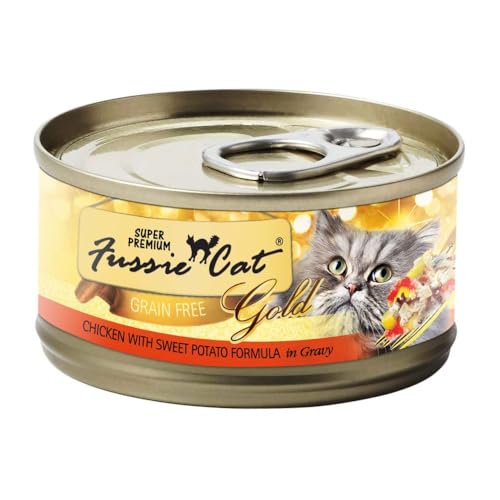Benefits of Homemade Cat Food
Making homemade cat food comes with a variety of benefits that you don’t want to miss out on. As a cat lover, enthusiast, and expert, it’s important for you to understand the advantages of preparing food for your furry friend at home.
1. Better Nutrition Control
When you make your own cat food, you have complete control over the ingredients. You can ensure that your feline friend is getting the right balance of proteins, carbohydrates, and fats to meet their nutritional needs. No more worrying about fillers or questionable ingredients commonly found in commercial pet food.
2. Tailored to Dietary Needs
Each cat is unique, and their dietary needs may vary. Homemade cat food allows you to customize meals based on your cat’s specific dietary needs or preferences. Whether your cat has allergies, sensitivities, or specific dietary restrictions, you can cater to their needs and provide them with the nourishment they require.
3. Improved Digestive Health
Certain commercial cat foods can contain fillers and additives that may not agree with your cat’s digestive system. By making homemade cat food, you can create meals that are easily digestible and gentle on their stomachs. This can help improve their overall digestive health and reduce the risk of gastrointestinal issues.
4. Enhanced Taste and Variety
Homemade cat food can be a tasty treat for your feline companion. You can experiment with different flavors and ingredients to provide them with a diverse and exciting menu. This not only keeps them satisfied but also ensures they’re getting essential nutrients from a variety of sources.
5. Strengthened Bond
Preparing homemade cat food allows you to spend quality time with your furry friend. As you prepare their meals, your cat will likely be curious and excited, creating an opportunity for bonding. This shared experience can strengthen the bond between you and your cat, making mealtime a special and enjoyable time for both of you.
By understanding the benefits of homemade cat food, you can provide your cat with the nutrition and love they deserve. So, why wait? Start creating delicious, homemade meals for your feline friend today.
Control Over Ingredients
As a cat lover, you want to make sure your furry friend is getting the best nutrition possible. When you make homemade cat food, you have complete control over the ingredients. This means you can select high-quality proteins, like chicken or fish, and choose fresh fruits and vegetables that are beneficial for your cat’s health.
Commercial cat food often contains fillers and preservatives that might not be the best for your cat’s overall well-being. By making your own cat food, you can avoid these unnecessary ingredients and provide a wholesome meal that is tailored to your cat’s specific needs.
When you buy commercial cat food, you can’t always be sure what’s inside. Some brands may use low-quality meat by-products or include artificial additives that can be harmful to your cat’s digestive system. By making homemade cat food, you know exactly what ingredients are going into your cat’s meal, giving you peace of mind.
Additionally, making your own cat food allows you to customize the recipe based on your cat’s dietary needs and preferences. For example, if your cat has food allergies or sensitivities, you can avoid those ingredients and find alternatives that are safe and suitable for them. This level of personalization ensures that your cat’s nutritional needs are being met.
By taking control over the ingredients in your cat’s food, you’re providing a healthier diet that supports their overall well-being. It’s a small step that can have a significant impact on your cat’s health and happiness.
Remember, making homemade cat food not only allows you to provide better nutrition but also strengthens your bond with your feline companion. So why not give it a try and start creating delicious meals specifically tailored for your cat today?
Tailoring Recipes to Fit Your Cat’s Needs
As a cat lover, you know that every feline has unique dietary needs and preferences. Just like humans, cats have different tastes and sensitivities when it comes to food. So why not tailor their homemade cat food recipes to fit their individual needs?
- Consult with a Veterinarian: Before making any changes to your cat’s diet, it’s important to consult with a veterinarian. They can provide guidance specific to your cat’s health, age, and any underlying conditions.
- Consider Protein Sources: Cats are obligate carnivores, which means they require a diet mainly consisting of meat. Ensure your homemade recipes are rich in high-quality animal protein to meet their nutritional needs.
- Manage Allergies and Food Intolerances: Just like humans, cats can have allergies or food intolerances. If you suspect your cat has any sensitivities, eliminate potential allergens such as grains or specific proteins from their diet and observe their response.
- Address Specific Health Concerns: If your cat has specific health concerns, such as weight management, urinary tract issues, or allergies, you can adjust their homemade cat food recipes accordingly. For example, increasing or reducing certain ingredients or adding supplements can help address these concerns.
- Keep an Eye on Portion Control: Feeding your cat the right portion size is essential for maintaining a healthy weight. Overfeeding can lead to obesity, while underfeeding can result in malnutrition. Adjust the portion size based on your cat’s age, activity level, and overall health.
Remember, tailoring your cat’s homemade food to fit their needs not only ensures they receive the right nutrients but also improves their overall well-being. By providing a personalized diet, you’re showing them your love and dedication.
Avoiding Fillers and Preservatives
When it comes to homemade cat food, one of the biggest advantages is the ability to avoid fillers and preservatives. Commercial cat food often contains these additives, which may not provide much nutritional value for your furry friend.
Fillers are ingredients that are used to bulk up cat food, but they lack essential nutrients. These fillers, such as corn, wheat, and soy, can contribute to digestive issues and allergies in cats. By making your own cat food, you have complete control over what goes into their meals, ensuring that they are getting the nutrients they need.
Preservatives, on the other hand, are added to commercial cat food to extend its shelf life. While these preservatives may help the food last longer, they can also be detrimental to your cat’s health. Some common preservatives, like BHA, BHT, and ethoxyquin, have been associated with various health issues in cats. By making homemade cat food, you can eliminate the need for these potentially harmful additives.
When preparing homemade cat food, focus on using real food ingredients that are fresh and nutritious. This includes lean meats such as chicken, turkey, or fish, as well as vegetables like carrots or peas. By opting for wholesome ingredients, you can provide your cat with a well-balanced diet that supports their overall health.
Remember to avoid ingredients that are toxic to cats, such as onions, garlic, grapes, and chocolate. These foods can be harmful and should never be included in your homemade cat food recipes. Always double-check before adding any new ingredients to ensure that they are safe for your fur baby.
Finally, proper storage is essential. Since homemade cat food doesn’t contain preservatives, it’s crucial to store it correctly to maintain its freshness and prevent spoilage. Be sure to refrigerate or freeze any leftovers promptly. Additionally, only make enough food to last for a reasonable amount of time to avoid any risk of contamination.
By preparing homemade cat food, you have the power to omit unnecessary fillers and preservatives from your cat’s diet. This can contribute to their overall well-being and help prevent potential health issues down the road. So go ahead and give your furry friend the gift of nutritious, homemade meals that are tailored to their specific needs.
Easy and Delicious Homemade Cat Food Recipes
Now that you understand the benefits of making homemade cat food and the importance of knowing what ingredients are in your cat’s food, let’s dive into some easy and delicious recipes that your furry friend will love. It’s time to treat them to a nourishing and delectable meal!
Recipe 1: Chicken and Rice Delight
- Ingredients:
- 1 cup cooked chicken, shredded
- 1/4 cup cooked rice
- 1/4 cup peas, cooked and mashed
- 1/4 cup carrots, cooked and mashed
- 1/4 cup chicken broth (low-sodium)
- In a bowl, mix the shredded chicken, cooked rice, mashed peas, and mashed carrots.
- Gradually add the chicken broth until you reach the desired consistency.
- Serve the mixture to your furry friend and watch them savor every bite.
Recipe 2: Tuna and Sweet Potato Surprise
- Ingredients:
- 1 can tuna in water, drained
- 1/4 cup mashed sweet potato
- 2 tablespoons cooked quinoa
- 1 tablespoon olive oil
- In a bowl, combine the tuna, mashed sweet potato, cooked quinoa, and olive oil.
- Mix thoroughly until all the ingredients are well-blended.
- Serve this delightful meal to your feline companion and witness their purr of satisfaction.
- Ingredients:
- 1/2 cup lean ground beef, cooked
- 1/4 cup pumpkin puree
- 1/4 cup cooked quinoa
- 1/4 cup green beans, cooked and chopped
- In a bowl, mix the cooked ground beef, pumpkin puree, cooked quinoa, and chopped green beans.
- Stir it until all the ingredients are evenly combined.
- Present this mouthwatering feast to your beloved furry companion and enjoy their happy purrs.
Remember, always consult your veterinarian before making any changes to your cat’s diet. These recipes are a great starting point, but your cat’s unique nutritional needs may vary. Offer variety in their meals and ensure a balanced diet to keep them healthy and satisfied.
Conclusion
Now that you’ve learned about the benefits of homemade cat food and explored some delicious recipes, you’re well-equipped to provide your feline friend with a nutritious and tasty diet. Remember, it’s important to consult with your veterinarian before making any changes to your cat’s diet to ensure it meets their specific nutritional needs.
By preparing homemade cat food, you have the opportunity to control the ingredients and tailor the meals to your cat’s preferences. Whether you choose to make the Chicken and Rice Delight, Tuna and Sweet Potato Surprise, or Beef and Pumpkin Feast, you can take comfort in knowing exactly what your cat is consuming.
Not only does homemade cat food allow you to provide a balanced and healthy diet, but it can also be a fun and rewarding experience. So, grab your apron, gather the ingredients, and get ready to create meals that will have your cat purring with delight.
Remember, your cat’s health and happiness are in your hands, and with homemade cat food, you can nourish them in the best way possible.
Frequently Asked Questions
Q: Can I make homemade cat food at home?
A: Yes, you can make homemade cat food using recipes like Chicken and Rice Delight, Tuna and Sweet Potato Surprise, and Beef and Pumpkin Feast. However, it’s important to consult a veterinarian before making any changes to your cat’s diet.
Q: Why is it important to consult a veterinarian before making homemade cat food?
A: Consulting a veterinarian is crucial because they can provide guidance based on your cat’s specific needs and health conditions. They can ensure that the homemade cat food recipe you choose is nutritionally balanced and suitable for your cat’s dietary requirements.
Q: How can I ensure a balanced diet for my cat?
A: To ensure a balanced diet for your cat, it’s important to include a variety of ingredients that provide essential nutrients. These can include proteins like chicken or fish, carbohydrates like rice or sweet potatoes, and vegetables like pumpkin. Additionally, you can also consider adding supplements or vitamin mixes recommended by your veterinarian.
Q: Are the homemade cat food recipes suitable for all cats?
A: The homemade cat food recipes provided in the article can be a good starting point, but it’s important to remember that each cat is unique. Some cats may have specific dietary requirements or health conditions that require personalized recipes. It’s best to consult a veterinarian to determine the most suitable diet for your individual cat.
Q: What are the benefits of homemade cat food?
A: Homemade cat food can offer several benefits, including control over the ingredients used, customization to meet your cat’s specific needs, and the potential for avoiding certain allergens or additives commonly found in commercial cat food. However, it’s important to ensure that the homemade food is nutritionally balanced and provides all the necessary nutrients.













